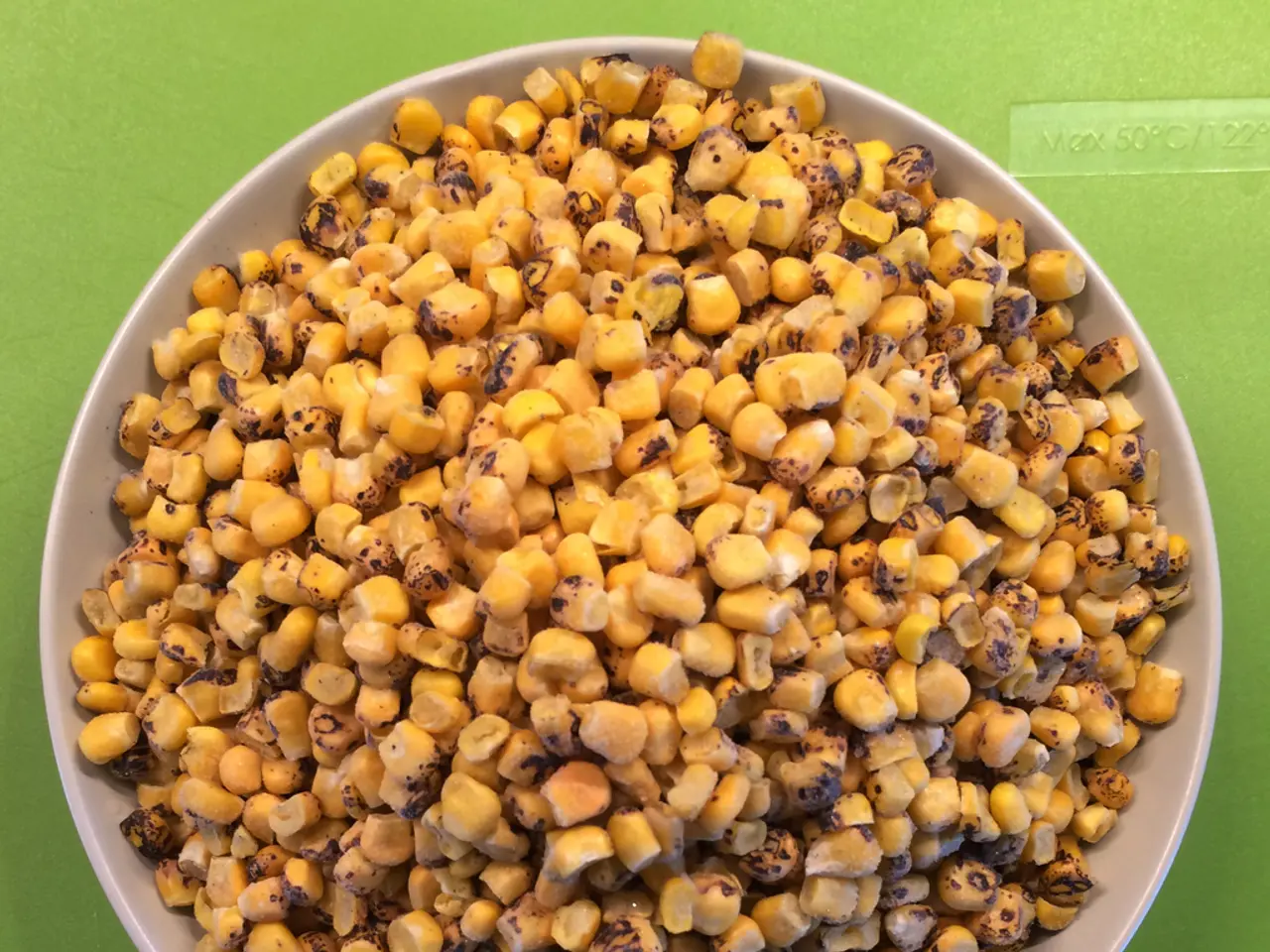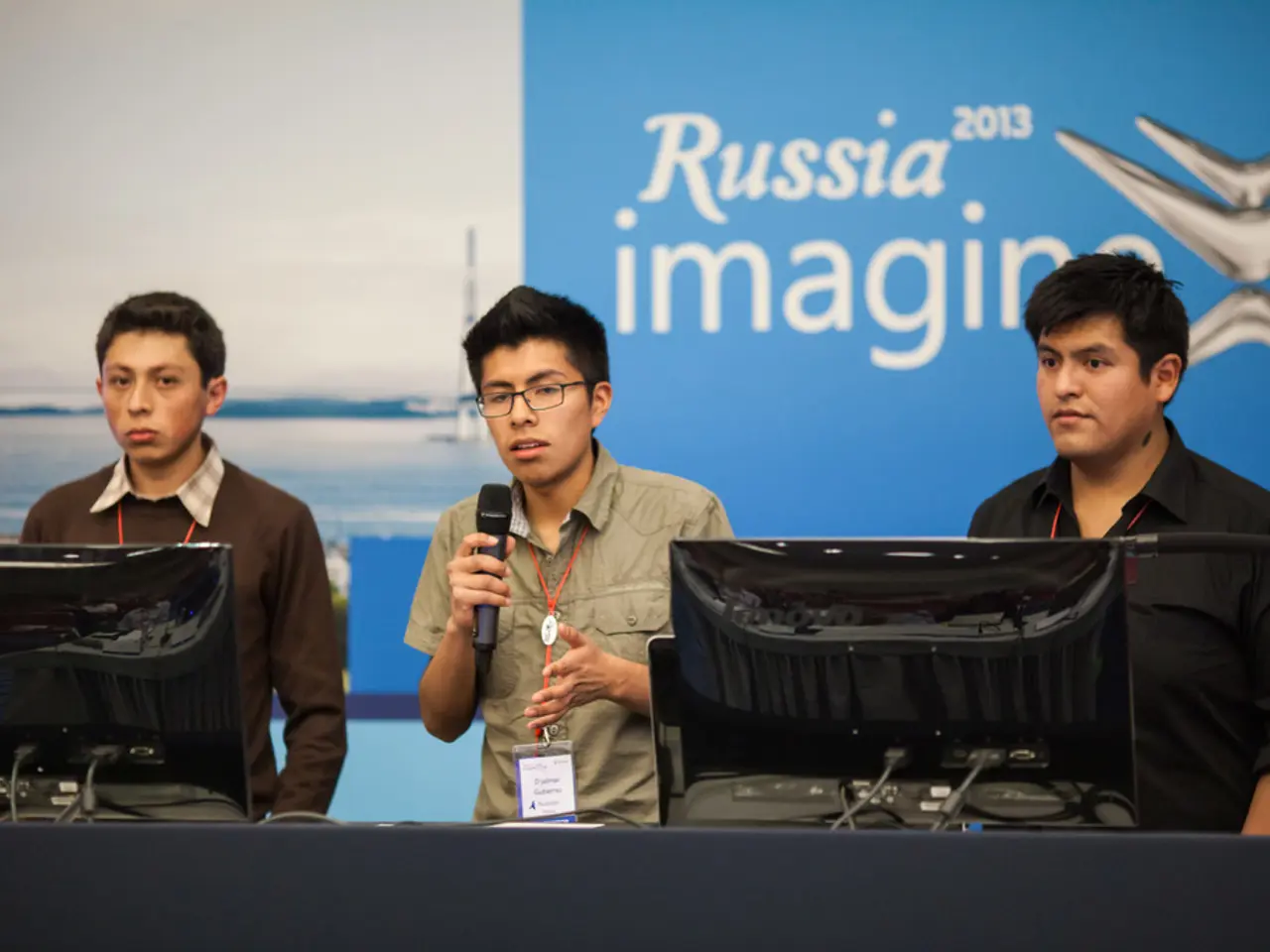Funding for AgriFoodtech ventures decreases to $5.1 billion, yet this dip signifies potential growth opportunities.
In a notable shift, venture capital (VC) funding in the agrifoodtech sector has experienced a significant decline in 2025. According to recent data, VC funding in this sector dropped by 37% in the first half of 2025 compared to the same period in 2024, with $5.1 billion invested over 557 deals - the lowest first-half total since 2015.
This downturn can be attributed to several key factors. Investor retrenchment and selectivity have become prevalent, with investors showing a preference for startups that demonstrate near-term viability and established business models. This has made fundraising conditions tougher, leading to lower median valuations. For instance, the median valuation dropped from $12.1 million in 2021 to $6.1 million in Q1 2025.
Another contributing factor is the increased focus on artificial intelligence (AI). While 71% of total VC capital in Q1 2025 went to AI and machine learning startups, few foodtech startups native to AI secured major rounds. Generalist investors seeking AI exposure may be overlooking foodtech opportunities, despite promising applications of AI in areas like restaurant management, supply chain traceability, and food production intelligence.
The sector's maturity and the need for consistent returns over time are also playing a role. As the agrifoodtech market approaches a key anniversary of its prior peak funding cycle (five years since 2021), some investors who previously funded capital-intensive projects without sufficient returns are less willing to reinvest.
Despite the overall decline, some subcategories like alternative proteins remain relatively resilient, attracting $1.7 billion over 199 deals in 12 months. Farm Robotics, Mechanization & Equipment, although experiencing a decline compared to previous years, still ranks fifth in terms of funding.
Founders are responding to this climate by focusing on one or two core products that meet clear market needs, scale effectively, and provide a credible path to profitability. They are also gaining a deep understanding of regional dynamics to navigate complexity and close the gap between technical validation and commercial scale.
Looking ahead, investors expect agrifoodtech investment to stay selective throughout the rest of 2025, leading to the emergence of more focused and strategic founders. The sector's ongoing process of proving its long-term viability and returns continues, with total funding likely to remain below prior peaks in 2025.
However, there is strong momentum in other areas such as agri-fintech and full-stack CDMO businesses, as well as in sustainable materials and agrifood life sciences. Notable funding rounds include UK-based Magnavale, which raised more than $600 million in a single round, and Diesco Industries, which raised $165 million.
In conclusion, the decline in Agrifoodtech VC funding in 2025 reflects a combination of greater investor caution, a pivot toward more developed startups, competition for capital with emerging sectors like AI, and the sector’s ongoing process of proving its long-term viability and returns.
Technological advancements, specifically in the field of artificial intelligence (AI), are playing a role in the shift of venture capital (VC) funding in the agrifoodtech sector. Generalist investors, seeking AI exposure, are overlooking foodtech opportunities despite promising applications of AI in areas like restaurant management, supply chain traceability, and food production intelligence.
The ongoing process of proving the long-term viability and returns of the agrifoodtech sector is also contributing to the increased focus on established business models and near-term viability, leading to tougher fundraising conditions and lower median valuations.




